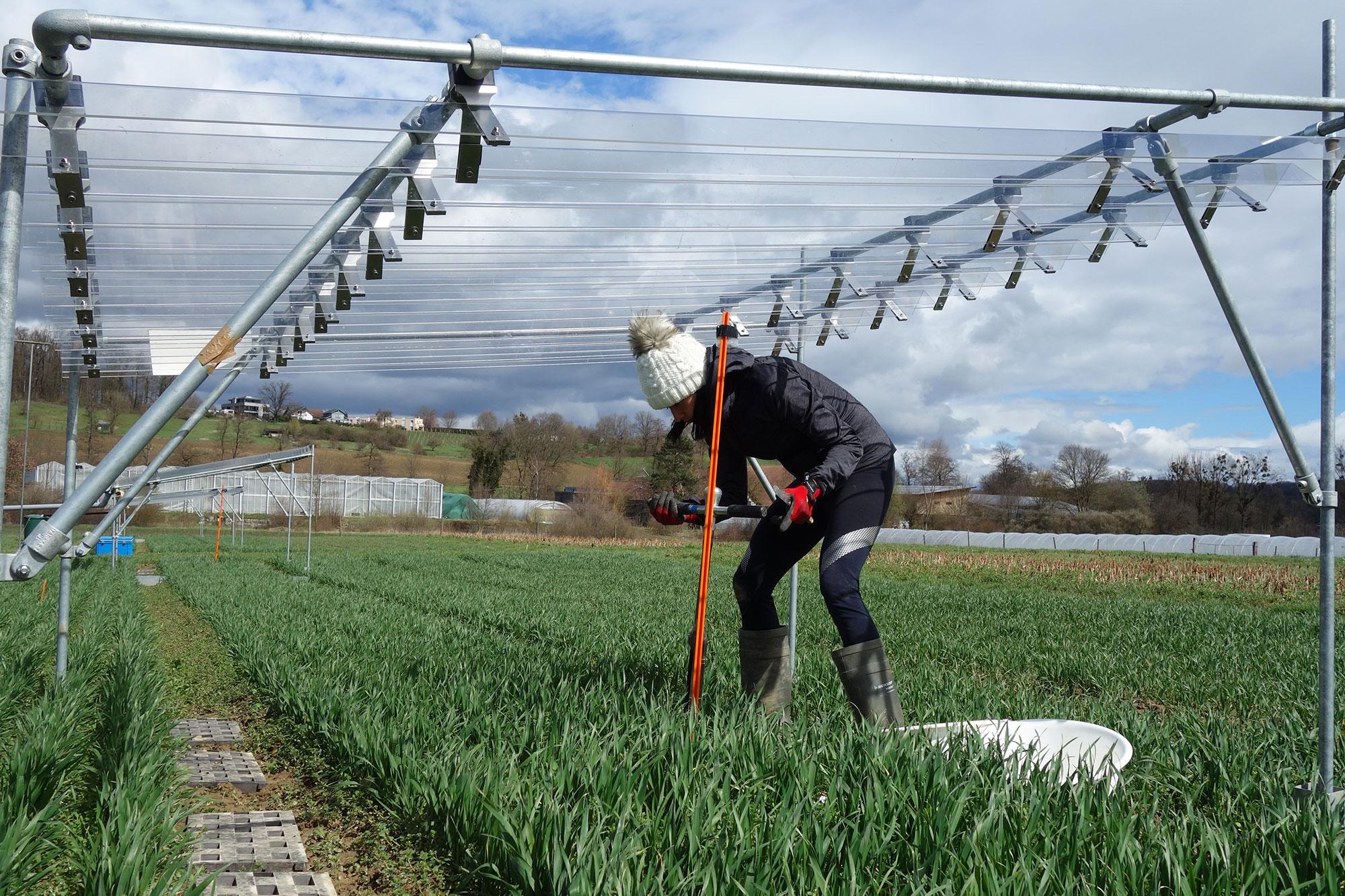Symbiotic fungal network in the soil withstands dry periods

They help plants absorb minerals – symbiotic mycorrhizal fungi. Now they have shown themselves to be very resistant to droughts.
Fungi in the soil can have a positive effect on agricultural yields. But little is yet known about how these microorganisms will respond to future extreme weather conditions. Initial results of an SNSF-funded field trial conducted by the Research Institute of Organic Agriculture (FiBL) in Therwil, in the region of Basel, now show: a dry period has little effect on mycorrhizae, the widespread symbiotic partnership between fungi and roots that helps plants absorb minerals and water.
Testing suitable cultivation methods
The experiment was part of a long-term project in which FiBL has been comparing different conventional and organic farming methods since 1978. Using a plastic roof, the researchers reduced rainfall on plots of winter wheat by 65%, simulating a drought. During the growth period, they took soil samples and determined the fungal species and diversity of the mycorrhizae using DNA analysis. Differences in species composition were found between conventional and biodynamic soil management, but in both systems the mycorrhizae showed surprising resistance to drought.
Further investigations showed that dry conditions even lead to a slight increase in the biomass of mycorrhizal fungi. It is possible that the fungi expand their fine network in order to draw more moisture from the smallest soil pores, says biologist Dominika Kundel, who is involved in the project. FiBL is now planning further studies to determine more comprehensively the effect of dry periods on soil microorganisms. The aim is the timely development of cultivation methods that prepare the soil for extreme climate events.